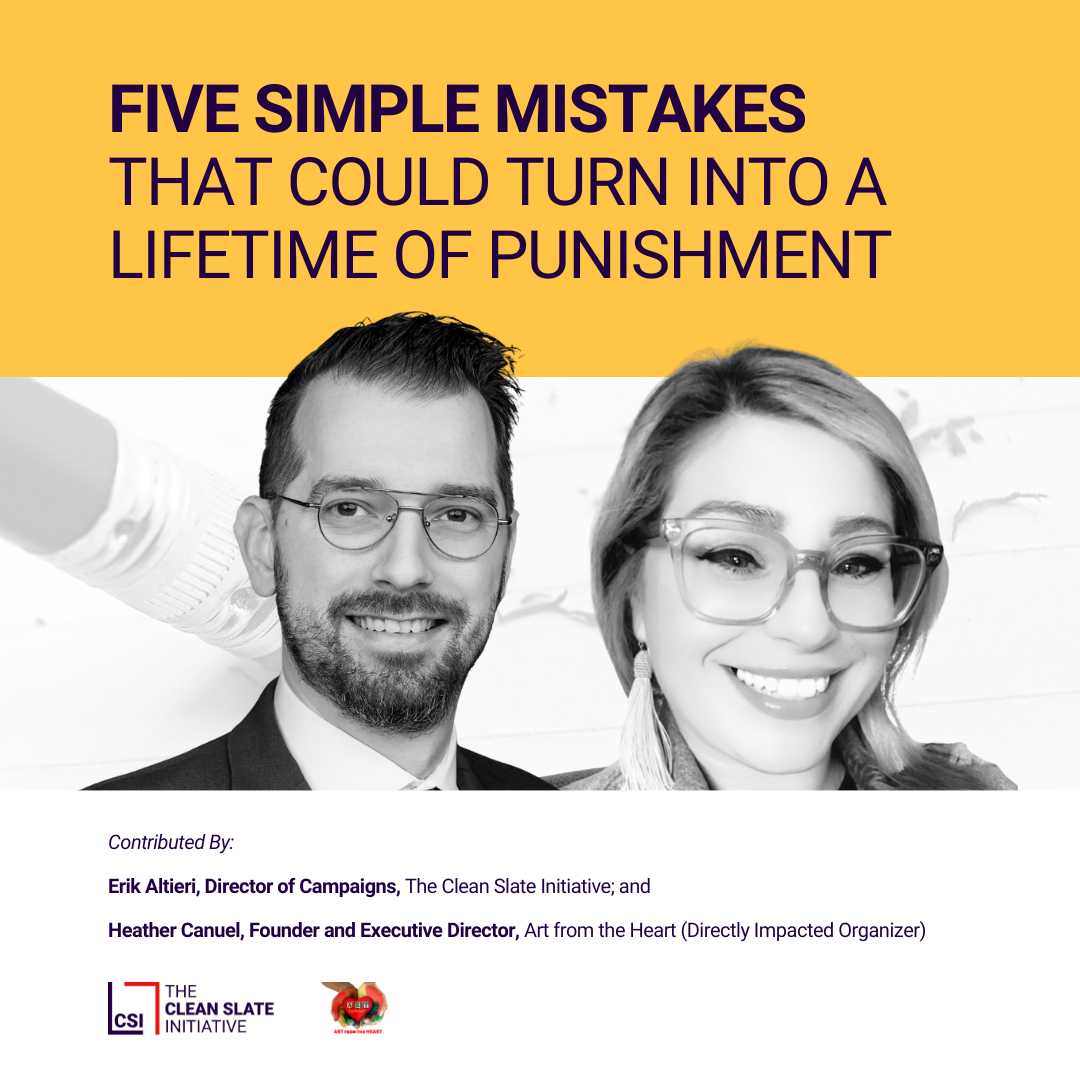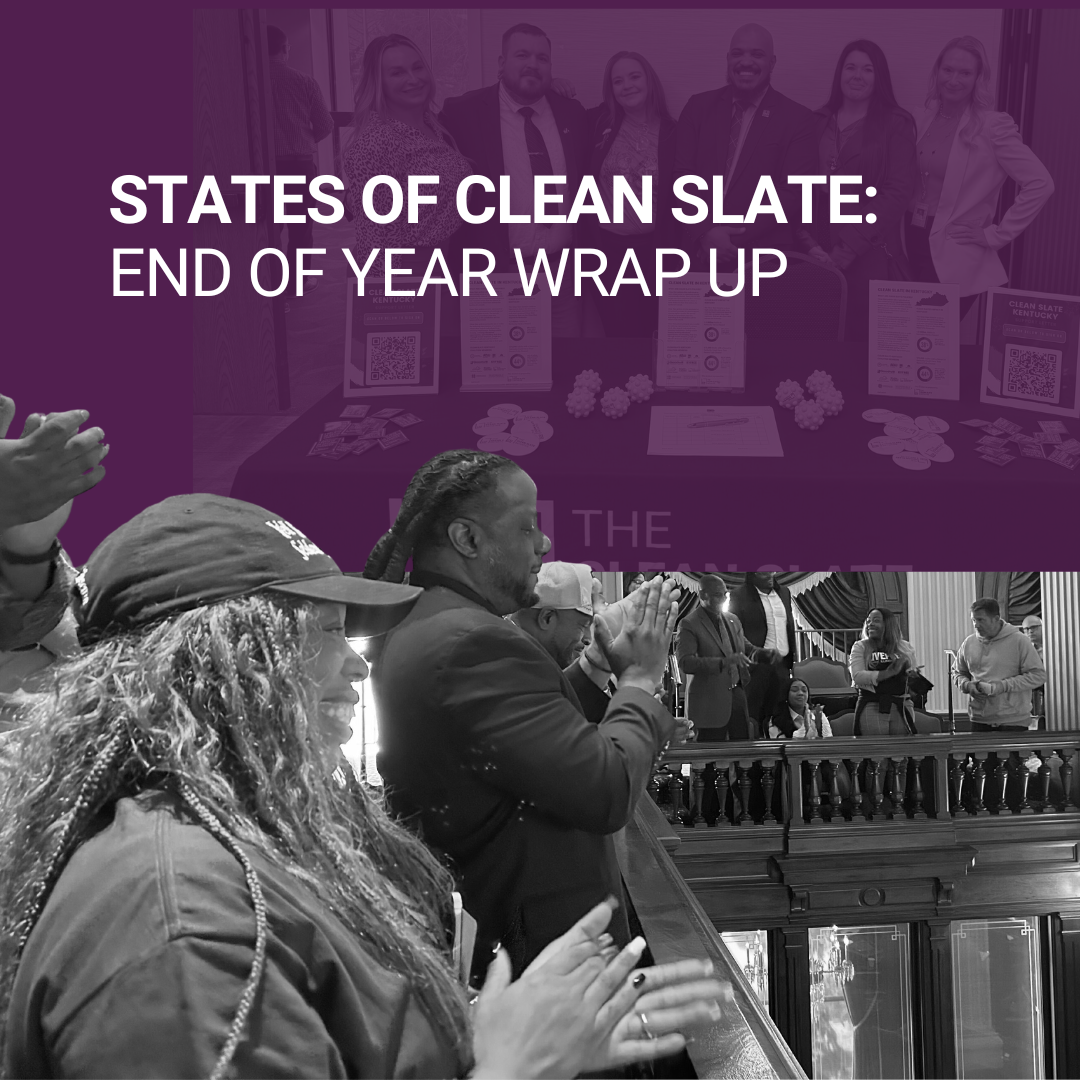New Research: Impacts of California's Clean Slate Law

New research conducted by Alissa Skog, Karla Betel Palos Castellanos, Johanna Lacoe, and Molly Pickard of the California Policy Lab at the University of California, Berkeley, titled “Who Benefits from Automatic Record Relief in California?”, highlights the significant reach and impacts of California’s automatic record relief laws. Their comprehensive analysis shows how California’s record relief initiatives are benefitting the estimated 8 million, or 1 in 5, Californians with an arrest or conviction record.
California’s Clean Slate law is a significant development in the national effort to provide automated record relief for millions of people in America who have records. In addition to advocating for Clean Slate policies in states and at the federal level, The Clean Slate Initiative (CSI) is committed to building the evidence base around Clean Slate policies by funding independent research to evaluate their impacts — including this project. As support for passing and implementing Clean Slate laws continues to grow across the United States, studies like these are how we can determine what’s working, what’s not, and how we can make sure the policies help the people they’re intended to help.
California’s Automatic Record Relief Laws
California passed a series of laws starting in 2019, aiming to reduce the lasting impacts of records on millions of residents. The legislative effort began with AB 1076 (2019), which laid the groundwork for automatic relief by requiring the state to automatically relieve certain non-conviction records and low-level convictions after individuals completed their sentences and specified waiting periods.
Passed in 2022, SB 731 came into effect in 2023, significantly expanding the scope of automatic record relief in California. Under SB 731, all felony non-convictions and many non-serious, non-violent felony convictions are eligible for automatic relief once individuals complete their sentences and remain crime-free for a four-year waiting period. This law also ensures that arrest records that do not result in a conviction are automatically relieved. Most misdemeanor convictions are eligible for automatic relief after sentence completion with a one-year waiting period.
While SB 731 expands automatic relief to a broader range of felony convictions, more serious felonies and misdemeanor convictions that require sex offender registration remain ineligible, requiring individuals to navigate the petition-based process for potential relief. Felony convictions that require registration under California’s sex offender laws are never eligible for any relief.
California began implementing automatic relief in July 2022 after delays due to the COVID-19 pandemic. Since then, nearly 12 million records have been sealed, making history as the largest record relief effort carried out in such a short timeframe. The process involves the California Department of Justice updating state-level records each month to reflect records’ relief status as they become eligible. These updates are then sent to county courts so they can change local records, which private background check companies most often use.
Key Findings From the Study
This study by Skog and colleagues, using data from the California Department of Justice, provides insights into who benefits from automatic record relief in the state. Specifically, the authors analyze the relief status of individuals eligible under the laws if automatic relief had taken place on January 1, 2022, for the population of people with convictions between 2010 and 2021.
- Nearly 90% of Californians with a conviction between 2010 and 2021 are estimated to be eligible for automatic record relief.
- Among these, a significant proportion (nearly 70%) are eligible to achieve a full “Clean Slate,” meaning all of their records are relieved. Another 14% of individuals would become eligible once they completed their sentences and waiting periods, while 17% would remain ineligible due to convictions that did not qualify for automatic relief.
- Among those with ineligible records, 7% had ineligible convictions from before 2010, even though their more recent records might have qualified.
- 77% of people with eligible records are eligible to receive a full Clean Slate, with the rate being highest (87%) for those with only misdemeanor convictions.
- Misdemeanor driving under the influence (DUI) convictions are the most common records eligible for relief, accounting for more than 30% of eligible records.
- Despite the widespread eligibility, Black Californians are underrepresented among those who will receive a full Clean Slate as a result of automatic record relief.
- Black Californians are overrepresented among those who are ineligible for automatic record relief. While Black people comprise 13% of those with convictions between 2010–21, they make up 24% of people who are only eligible for relief through a more onerous petition-based process, which prior research has demonstrated often has low take-up rates.
- Women disproportionately benefit from Clean Slate in California.
- Nearly 30% of women are eligible for a Clean Slate, while they make up only 13% of the population with convictions between 2010-2021.
- Most individuals who receive a Clean Slate are likely to maintain it for at least five years.
- Using a subset of the data, the researchers estimate that most people (72%) who likely receive a Clean Slate will maintain it (not have future contact with the justice system) for at least five years after their record is automatically relieved.
- Only a small fraction, less than 2%, are expected to be convicted of a new offense that would disqualify them from automatic relief in the future.
Policy Implications and Directions for Future Research
These findings highlight the broad reach and potential of automatic record relief policies to change lives and expand opportunities. However, there are still important gaps that policymakers should take into account.
First, policies should aim to reduce racial disparities whenever possible. This could involve creating more accessible pathways for individuals with more serious records to become eligible for automatic relief, given the consistent evidence that Black individuals are more likely to be arrested, charged, and receive harsher punishments than their white counterparts. Black Californians with records disproportionately face navigating the burdensome petition-based process for relief — a process that has historically seen low takeup rates — limiting the reach of relief efforts.
Additionally, California lacks a notification system to inform individuals that their records have been relieved. This may limit their ability to fully benefit from opportunities in employment, housing, education, and their children’s lives. The study’s authors recommend creating a secure and easy-to-access system for individuals to verify their record status and investing in public awareness efforts to ensure those impacted by record relief can take full advantage of their Clean Slate.
Finally, while records are relieved at the state level, local records may not be updated in real-time (or at all), which can lead to inconsistencies in background checks, particularly from third-party consumer reporting agencies that often rely on county-level data.
Looking ahead, more research is needed to understand the broader impacts of record relief in areas like housing, employment, family stability, health, and civic engagement, as well as how notification efforts, both targeted and broad, can enhance the effectiveness of Clean Slate policies. In addition, further research is needed to understand how records are updated in a timely manner across multiple data systems that can impact background checks.
The California Policy Lab, supported by The Clean Slate Initiative, is currently researching Clean Slate's causal impacts on recidivism and other outcomes in California. The Clean Slate Initiative has invested in independent research to evaluate the impacts of our policies’ notification efforts, and whether records that have been relieved are updated in background checks on the lives of millions of individuals impacted by the legal system.
.avif)
.avif)




.png)


